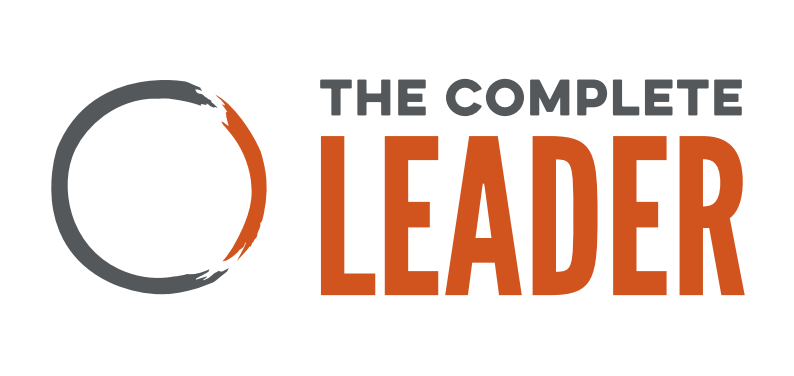7 easy ways to improve your futuristic thinking skills
What is futuristic thinking?
Following our hugely successful first ever Complete Leader seminar in the RDS this Monday, our guests asked presenters Ron Price (TCL Founder) and Padraig Berry (TCL Faculty Member) to provide more information on how ‘Leaders are Clear Thinkers’.
So, over the next few weeks we will provide practical tips that you can implement to develop the skills associated with ‘Leaders are Clear Thinkers’. Let’s start with futuristic thinking…
When people have new, original and out-there ideas they are so often surrounded by small-minded people who poo-poo their visions.
As Henry Ford reportedly said, “If I had asked people what they wanted, they would have said faster horses”.
Futuristic thinkers can imagine and predict changes that others don’t see. They look beyond current circumstances and realities and envision their lives the way they’d like them to turn out.
Before the Model T Ford came out in the early 1900s, nobody could imagine a car that was affordable for the average citizen.
Now, in 2017, we can’t imagine how we got by without them!
According to The Complete Leader, knowledge is doubling every thirteen months, and this rate is predicted to continue increasing over the next decade.

Futuristic thinking – the ability to imagine, envision and predict what has not been realized – is a vital skill for true success.
After all, the leaders of tomorrow will have to think outside the box and think further into the future if they want to remain competitive and predict changes before their competitors.

How can futuristic thinking be developed?
#1: Surround yourself with futuristic thinkers
Are their people in your life that you admire for their futuristic thinking skills? Maybe they strike you as great leaders, as people who have a vision for the future and can imagine the impossible?
They say we become the sum of the five people we spend the most time with, and it’s certainly true that we’re influenced by the people around us.
So, spend time with the people around you who exude passion about the future. Ask them questions, listen attentively and you’re guaranteed to learn more about how to become a futuristic thinker.

#2: Predictions aren’t just for fortune tellers. Focus on trends!
Even the best statisticians and market researchers worldwide make mistakes (think Brexit and Trump’s election), but there is a lot to be said for focusing on trends and making predictions.
Make use of the huge variety of resources on the web and read material from futuristic thinkers. What do they have to say about the future of technology, demographics, politics and environmental issues?
Read widely and consider trends that you have observed. Which of these might impact your life and your organisation? What need might the world have that you can fill? Is there a business opportunity just waiting for you?
#3: Write down the various scenarios that could happen
If you want to get comfortable with uncertainty and to improve your futuristic thinking skills, why not prepare for every eventuality?
The Complete Leader recommends the following tool to help you work through worry and prepare for a great future.
Let’s assume you’re thinking about a business you just started. Write down several different scenarios about how the future might unfold under the following headings:
- Growth, or Preferred. This assumes that your business will be successful
- Collapse, or Doomsday. This assumes that the organisation will fail
- Most Likely, or Probable. This assumes that things will turn out as you expect them to
- Transformational, or Utopian. This assumes that some major change will happen that will affect the business.
This is an excellent tool for developing the skill of futuristic thinking.
#4: Look at what has already changed
If you want to become better at futuristic thinking, just look back over the course of your life and notice what has changed.
Write a list of how your life, your career, relationships, interests and passions have changed over your lifetime. Try to come up with fifty changes.
Now let’s flip the exercise around and focus on the future. Consider your life as a piece of string. Depending on your age, you may have used more string than others. That doesn’t matter.
What matters is, what are you going to do with the string you have left?
Think big and imagine the positive changes that could occur in the various aspects of your life. Futuristic thinking skills are all about being able to imagine the various scenarios for the future. What are you going to achieve?

#5: What’s your ONE thing?
In The ONE Thing book by Gary Keller and Jay Pappasan, the authors ask the following question:
“What’s the ONE thing you could start doing today that would drastically change your life and business over the next five years?”
Perhaps it’s to start seeing a nutritionist, save money or take a new course.
Futuristic thinkers know where they’re going and can imagine a future that’s bigger and brighter than it is today. They decide what they want and start taking steps towards it.
#6: Simplify your life
Have you ever noticed that tidying your kitchen/car/desk can feel like a weight off your shoulders?
A cluttered space can cause flighty, scattered thinking. Similarly, a hectic, cluttered schedule is often detrimental to productivity.
Improve your futuristic thinking skills by keeping your environment tidy and your mind focused on your goals.
As Geoff Pilkington tells us, Einstein and Obama were famed for keeping their wardrobes really simple. Their wardrobes consisted of different variations of the same grey suit for Einstein and a few staples for Obama.
They were too focused on creating their futures to put much time into worrying about what they were going to wear in the mornings.
Are there changes that you need to make to simplify your life? Could you cook meals in advance, start saying ‘no’ more often or chunk out some distraction-free time to work on what really matters?

#7: Stop accepting the default
If you want to develop your futuristic thinking skills, you need to stop accepting the default!
So many people just accept the default option, when their lives could be so much richer by deliberate creation.
How about you, are you just accepting your lot in life and going along with the flow, or are you choosing how you want to spend your precious days and life?
Why not try something new?
Aim to bring a sense of freshness into your day-to-day life by trying new things.
Try a different coffee today, buy that exotic fruit that you can’t name, and find new ways to relate with the people around you.
Dare to push at the walls of your comfort zone and try new things.
This can open your mind up to new ideas and new ways of seeing the world. It can improve your creativity and work wonders for your futuristic thinking skills.
As Geoff Pilkington points out, even the smallest of changes can make a huge difference. The universe responds to change, and futuristic thinking is the key to this.
Final thoughts…
Management consultant Peter Drucker summed up futuristic thinking very succinctly when he said “The best way to predict the future is to create it”.
The problem is, most people are living in a reactive haze in which they go along with what happens to them; they accept their fate, fear the future and don’t have the courage to dream of a better world.
If you would like to improve your futuristic thinking skills, surround yourself with futuristic thinkers, focus on trends, write down what has already changed and what might change in the future. Keep things simple and stop choosing the default option.
Which of these tips will make a difference to your futuristic thinking? Start now and tell us how you got on.
Interested in joining a leadership community to help you on your journey? Why not join our Complete Leadership Ireland LinkedIn group, where you will have access to lots of great resources on leadership, as well as the opportunity to participate in discussions with other leaders.
Ron Price and Padraig Berry will also be hosting a webinar as a follow-on from our seminar. It will take place on Tuesday 23rd May at 1pm and we would love to have you with us.
10 Things Successful People Do Every Day
What if there was a secret formula for success that you could copy? Kevin Kruse best selling author recently interviewed more than 200 highly successful people to find out what their number 1 secret to productivity? These people included 7 billionaires and 13 olympians. The answers have been distilled into 10 Simple Steps you can follow to achieve your own success.
5 mistakes people make with the DISC profile
When you are hiring, you need to use more than DISC. DISC is outwardly observable behavioural tendencies. What goes on beneath the surface is harder to read but even more powerful. What if you could see what a person values and is driven by, be it money, status, helping others? How much engagement could you get from your employees if you had this information at your finger tips. Using DISC correctly and in conjunction with the other TTI Tools is essential for your organisation’s success.
3 Easy Steps to Building a Solid Company Culture
Companies need to reimagine how they attract – and retain – employees by giving them what they desire, resulting in keeping them happier and more engaged. I am unique. So is every other employee. Companies would be wise to get to know their employees on a personal level and find out what is truly important to each and every one of them. Then, create a unique plan for each person that helps the employee achieve what he or she strives to achieve.

Discover Your Leadership Style TODAY!
- First step to being a leader is knowing yourself. If you don’t understand yourself how can you understand others? Learn to understand others better.
- Learn what your true behaviours and driving forces are.
- Identify what leadership competencies you are strong in and where you can improve.



